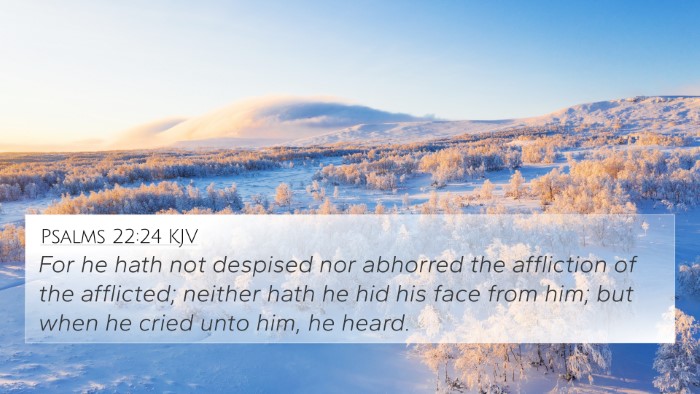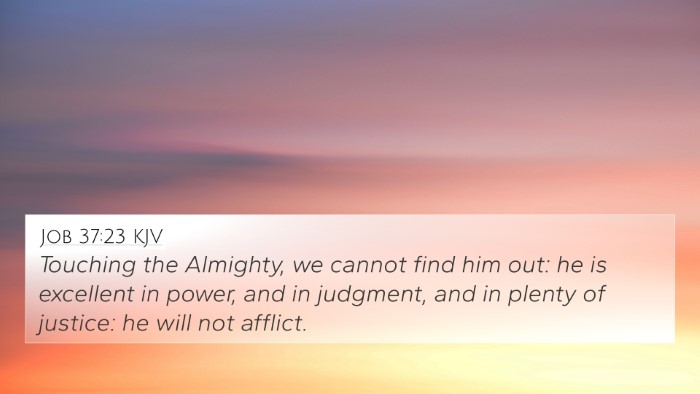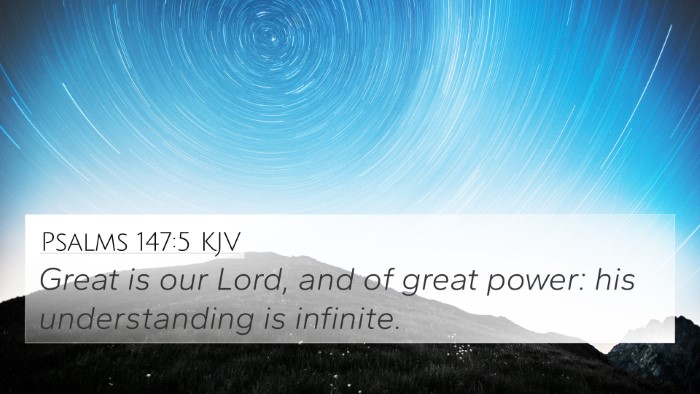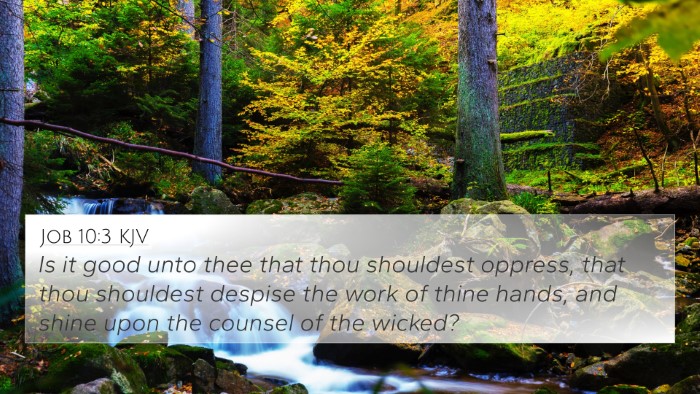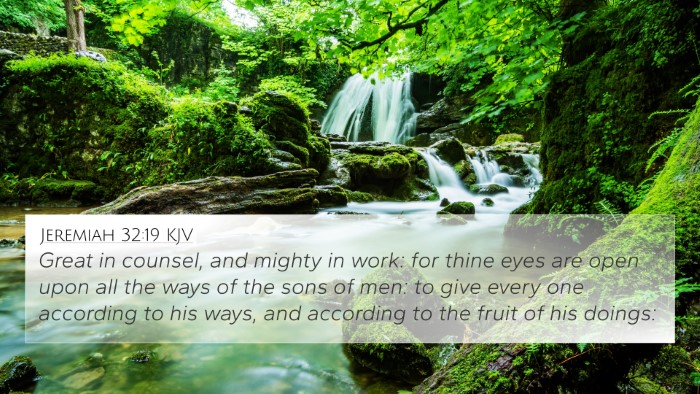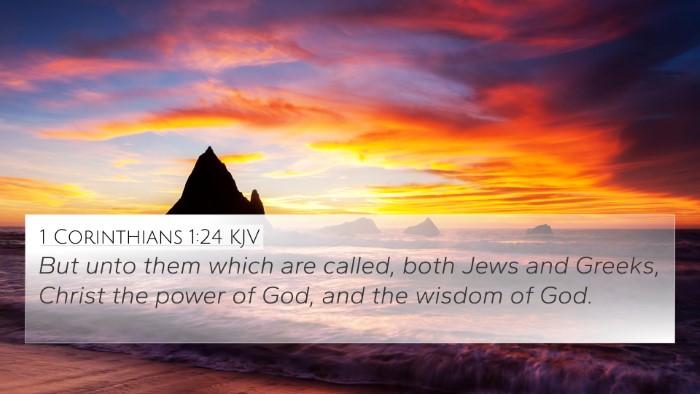Understanding Job 36:5
Job 36:5 states, "God is mighty, but despises no one; he is mighty and firm in his purpose." This verse emphasizes God’s sovereignty and care for human beings, equating His greatness with compassion and purpose.
Commentary Insights
Matthew Henry notes that this verse showcases the balance between God's might and His willingness to engage with humanity. He explains that even though God is all-powerful and beyond human comprehension, He does not disregard or neglect any individual. Instead, His purpose is intentional and is directed toward the good of His creation.
Albert Barnes emphasizes the notion that God is attentive and never shuns His creation. He highlights the importance of recognizing God’s authority and intention behind creation and His ongoing relationship with it. Barnes interprets the phrase "despises no one" as a reflection of God’s universal care, which can be contrasted with human tendencies to overlook or dismiss others based on status or circumstances.
Adam Clarke offers a deeper analysis of the implications of God's might and purpose. He explains that God's strength is not merely for displaying power but ensures that His purposes are fulfilled with justice and mercy. Clarke stresses that God’s purpose for humanity is aligned not just with His strength but encompasses a loving guidance that seeks the best for each individual.
Cross-References to Job 36:5
- Psalm 147:5 - "Great is our Lord, and mighty in power; his understanding is infinite."
- Matthew 10:29-31 - "Are not two sparrows sold for a penny? Yet not one of them will fall to the ground outside your Father’s care."
- Isaiah 40:28 - "The Lord is the everlasting God, the Creator of the ends of the earth. He will not grow tired or weary, and his understanding no one can fathom."
- Romans 8:31 - "If God is for us, who can be against us?"
- 1 Peter 5:7 - "Cast all your anxiety on him because he cares for you."
- Deuteronomy 10:17 - "For the Lord your God is God of gods and Lord of lords, the great God, mighty and awesome, who shows no partiality and accepts no bribes."
- Jeremiah 32:17 - "Ah, Sovereign Lord, you have made the heavens and the earth by your great power and outstretched arm. Nothing is too hard for you."
- Proverbs 15:3 - "The eyes of the Lord are everywhere, keeping watch on the wicked and the good."
- Psalm 33:13-15 - "From heaven the Lord looks down and sees all mankind; from his dwelling place he watches all who live on earth—he who forms the hearts of all, who considers everything they do."
- Romans 11:33 - "Oh, the depth of the riches of the wisdom and knowledge of God! How unsearchable his judgments, and his paths beyond tracing out!"
Connecting Themes in Scripture
The themes presented in Job 36:5 are echoed throughout the Bible, indicating the interconnected nature of its teachings. Here are some important connections:
- Sovereignty and Care: The connection between God’s sovereignty and His personal care for His creation is a recurring theme. This is seen in verses like Matthew 10:29-31 and 1 Peter 5:7.
- Justice and Purpose: The idea that God's might is directed toward justice can be explored in Deuteronomy 10:17 and Romans 8:31.
- Understanding of God: The vastness of God's understanding is a theme in Isaiah 40:28 and Romans 11:33, emphasizing that while He is mighty, He is also deeply knowledgeable about humanity.
Tools for Bible Cross-Referencing
To delve deeper into the meanings of scripture and the connections between verses, various tools can be utilized:
- Bible Concordance: A useful resource for finding specific mentions of words and phrases across various scriptures.
- Bible Cross-Reference Guide: Helps identify verses that relate to a given text, enhancing understanding.
- Cross-Reference Bible Study: Methods that involve looking up related verses and themes to develop a comprehensive understanding.
Conclusion
Job 36:5 serves as a powerful reminder of the balance between God's might and His compassionate nature. By exploring the insights from commentaries and utilizing cross-referencing tools, one can better understand the depth of this verse and its connections with the broader biblical narrative.



